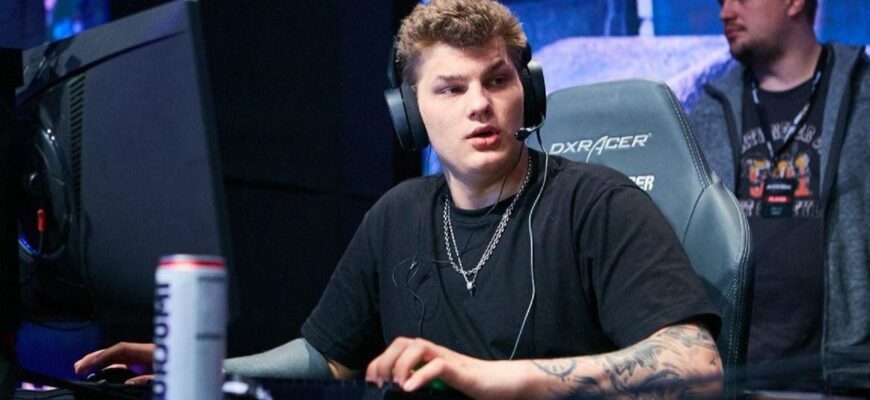In the high-stakes, pressure-cooker world of professional Dota 2, team cohesion is often lauded as the bedrock of success. Yet, beneath the veneer of synchronized plays and victorious shouts, lie the intricate, sometimes volatile, dynamics of human personalities. Bogdan “Iceberg” Vasilenko, a figure known for his aggressive mid-lane prowess and equally direct commentary, recently pulled back the curtain on this often-unspoken reality. His revelation? Amidst a career spanning numerous rosters, only one significant interpersonal conflict truly stands out: his unique clash with Alexander “nofear” Churochkin during their tenure with Winstrike Team at The International 2018.
A Rare Glimpse into Pro Player Relations
Iceberg’s account, delivered with characteristic candor during a recent stream, paints a fascinating picture. He stated that, contrary to popular drama narratives, he rarely found himself at loggerheads with teammates during bootcamps or intense periods. “No, never [wanted to physically confront anyone] at a bootcamp,” he mused, emphasizing his understanding of individual comfort zones and the need for a conducive environment. This context makes his singular dispute with nofear all the more notable, highlighting it as an anomaly in his otherwise stable professional relationships.
Because he’s a lunatic, what can I do? You know, he`ll just come up with something in his head, and that’s it, nothing you can do.
The core of the disagreement, according to Iceberg, stemmed from what he described, without apparent malice but certainly with a hint of exasperation, as nofear`s particular mental framework. “Because he’s a lunatic, what can I do?” Iceberg quipped, attributing nofear`s actions to an internal logic that was unyielding. He further elaborated: “You know, he`ll just come up with something in his head, and that’s it, nothing you can do.” It’s a remarkably blunt assessment, offering a glimpse into the frustrations that can arise when communication styles or perceived realities diverge sharply within a high-pressure team setting. The irony, of course, being that even professional gamers, operating at the peak of strategic complexity, still grapple with the very human challenge of simply understanding each other.
Winstrike at TI8: Performance Amidst Personalities
This candid peek behind the curtain of professional esports is particularly illuminating given the context of Winstrike Team’s unexpected run at The International 2018. Against considerable odds, the squad, which included Iceberg and nofear, battled through rigorous qualifiers to secure a coveted spot at Dota 2`s pinnacle event. Their eventual 9th-12th place finish was a commendable achievement for a team often considered an underdog, defying many pre-tournament expectations. The fact that such a significant personal conflict was brewing within a team that still managed to perform at the highest level underscores the complex resilience required in professional gaming. It suggests that even amidst internal friction, players can compartmentalize, focusing intently on the game rather than succumbing entirely to interpersonal strife. Or, perhaps, that the friction itself, when managed—or merely endured—can sometimes become part of a team’s unique, albeit tumultuous, path to success.
The Value of Self-Reflection in Esports
Iceberg himself offers a compelling counterpoint to this perceived inflexibility. He firmly believes that his own strength lies in his willingness to admit mistakes. “If I myself did something [silly], I consider it my strong side that I can always admit a mistake,” he affirmed. “I don’t have that pride overwhelming me.” This self-awareness highlights a mature approach to self-improvement and team collaboration, suggesting that while conflicts are inevitable, the capacity for introspection and humility can be a powerful mitigating factor. It’s a trait that, one might argue, is invaluable in any high-pressure collaborative environment, esports or otherwise. True professionals, it seems, are not just masters of their craft, but also diligent students of their own character.
Beyond the Digital Arena: Human Elements of Success
The anecdote serves as a potent reminder that professional esports, despite its digital battlefield, is fundamentally a human endeavor. The intricate dance of personalities, the clashing of egos, and the struggle for cohesion are as central to a team’s narrative as their in-game strategies. Iceberg’s frankness not only provides a rare insight into the inner workings of a top-tier Dota 2 team but also subtly champions the often-understated value of humility and adaptability in the pursuit of collective victory. For aspiring professionals and seasoned fans alike, it’s a lesson that extends far beyond the Roshan pit: sometimes, the greatest battles are fought not against opposing heroes, but within the confines of one’s own team.







